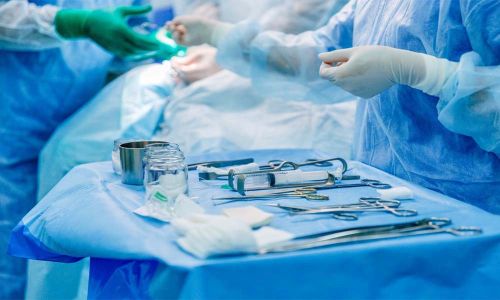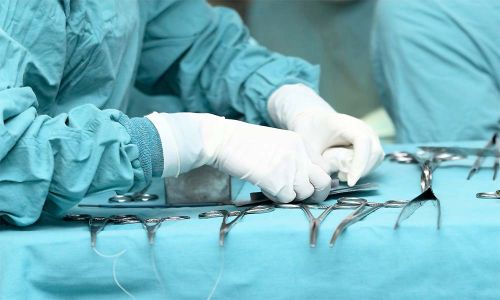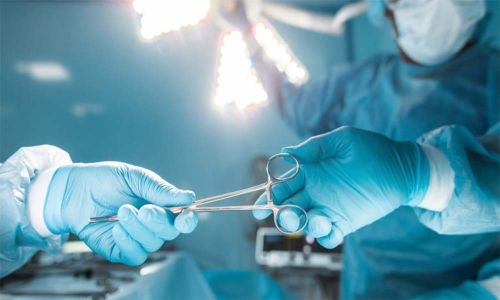It refers to the surgical methods used in the diagnosis and treatment of cancer diseases. What is oncological surgery? It aims to prevent the spread of cancer. Surgical interventions involve removing the tumor. These procedures also include cleaning the surrounding tissues and removing lymph nodes when necessary.
Who is a Suitable Candidate for Oncological Surgery?
 It is an important method in cancer treatment and can be applied to patients who meet certain criteria. Identifying candidates who may benefit from surgical intervention depends on various factors. Therefore, every patient should be evaluated. It is suitable for people with good health conditions. Surgery is a process that requires anesthesia. Therefore, it is important that vital organs such as the heart, lungs or kidneys are healthy. People should be evaluated in detail by the doctor before surgery. Patients with early stages of cancer generally benefit more from surgery. The size of the tumor, its location and its spread to surrounding tissues are factors that determine whether surgical intervention is possible. Localized types of cancer are considered more suitable for surgery. In advanced stages, other methods may be preferred. In some patients, chemotherapy or radiotherapy may be alternative or complementary treatments. However, if no results are obtained, surgery may be preferred. Patients supported with these treatments after surgery reduce the risk of cancer recurrence. Although advanced age is not a barrier to surgery, other age-related health problems may pose a risk. In addition, it is important to be psychologically prepared to adapt to the surgery process and its aftermath. Surgery requires physical and mental endurance. As a result, suitable candidates for oncological surgery are individuals with good general health. Patients diagnosed with early-stage cancer who may benefit from surgery are included. Each patient must be evaluated individually. The treatment plan should be individualized.
It is an important method in cancer treatment and can be applied to patients who meet certain criteria. Identifying candidates who may benefit from surgical intervention depends on various factors. Therefore, every patient should be evaluated. It is suitable for people with good health conditions. Surgery is a process that requires anesthesia. Therefore, it is important that vital organs such as the heart, lungs or kidneys are healthy. People should be evaluated in detail by the doctor before surgery. Patients with early stages of cancer generally benefit more from surgery. The size of the tumor, its location and its spread to surrounding tissues are factors that determine whether surgical intervention is possible. Localized types of cancer are considered more suitable for surgery. In advanced stages, other methods may be preferred. In some patients, chemotherapy or radiotherapy may be alternative or complementary treatments. However, if no results are obtained, surgery may be preferred. Patients supported with these treatments after surgery reduce the risk of cancer recurrence. Although advanced age is not a barrier to surgery, other age-related health problems may pose a risk. In addition, it is important to be psychologically prepared to adapt to the surgery process and its aftermath. Surgery requires physical and mental endurance. As a result, suitable candidates for oncological surgery are individuals with good general health. Patients diagnosed with early-stage cancer who may benefit from surgery are included. Each patient must be evaluated individually. The treatment plan should be individualized.
What is Oncological Surgery? What are the methods?
 Oncological surgery is a method used in the treatment of cancer. Cancerous tissues are removed from the body. It aims to control cancer. For complete removal it can be applied with other methods. Its main goal is to prevent the spread of cancer while improving the quality of life of patients. Open Surgery involves surgical procedures performed through large incisions. It is especially preferred when large tumors need to be removed or surrounding tissues need to be cleaned. Provides visibility for complete removal of the tumor. Laparoscopic surgery is a minimally invasive technique. It is applied through small incisions with special tools. It is camera supported. It provides less tissue damage and a faster healing process. It is widely used in the removal of small-sized tumors. Robotic surgery is preferred in cases requiring high precision. Thanks to robotic arms and 3D camera system, surgeons can remove cancerous tissue with millimetric incisions. It is an effective option especially for tumors in difficult areas. In Palliative Surgery, the cancer is not completely cured. Instead, it is administered to relieve symptoms. For example, it is done for purposes such as removing blockages or reducing pain. It is an effective option in cancer treatment. It is usually applied in combination with other methods. Which method will be used is determined by the patient's condition and cancer. The success of the treatment process can be increased by choosing the right method and a multidisciplinary approach.
Oncological surgery is a method used in the treatment of cancer. Cancerous tissues are removed from the body. It aims to control cancer. For complete removal it can be applied with other methods. Its main goal is to prevent the spread of cancer while improving the quality of life of patients. Open Surgery involves surgical procedures performed through large incisions. It is especially preferred when large tumors need to be removed or surrounding tissues need to be cleaned. Provides visibility for complete removal of the tumor. Laparoscopic surgery is a minimally invasive technique. It is applied through small incisions with special tools. It is camera supported. It provides less tissue damage and a faster healing process. It is widely used in the removal of small-sized tumors. Robotic surgery is preferred in cases requiring high precision. Thanks to robotic arms and 3D camera system, surgeons can remove cancerous tissue with millimetric incisions. It is an effective option especially for tumors in difficult areas. In Palliative Surgery, the cancer is not completely cured. Instead, it is administered to relieve symptoms. For example, it is done for purposes such as removing blockages or reducing pain. It is an effective option in cancer treatment. It is usually applied in combination with other methods. Which method will be used is determined by the patient's condition and cancer. The success of the treatment process can be increased by choosing the right method and a multidisciplinary approach.
Things to Consider After Oncological Surgery
 The recovery process after oncological surgery is an important part of the treatment. To increase the success of the surgery, patients must carefully follow the doctor's recommendations. It is important to follow these recommendations to prevent complications. This process is of great importance for recovery. Cleaning and care rules must be followed to prevent the wound from becoming infected after surgery. The wound area should be kept clean and dry. Thus, the risk of infection is reduced. Dressings should be done as recommended by the doctor. Wound healing should be checked regularly. A healthy and balanced nutrition program should be implemented to support the body's healing process. Rich foods should be preferred. Consuming adequate amounts of water helps the body recover. Movement is as important as resting after surgery. Light exercises, as permitted by the doctor, accelerate recovery by increasing blood circulation. However, strenuous activities should be avoided. Regular doctor checks should not be neglected after surgery. These checks enable early detection of complications. It is also important for evaluating the treatment process. Cancer treatment can be emotionally challenging. Receiving psychological support for patients has a positive contribution to recovery. Family and friend support is important. Things to consider after surgery ensure a healthy completion. Patients should follow doctor's instructions. It should not disrupt the controls. They can help you get through this process successfully by getting support when necessary. What is oncological surgery? This question is important to understand the treatment process and receive the right interventions.
The recovery process after oncological surgery is an important part of the treatment. To increase the success of the surgery, patients must carefully follow the doctor's recommendations. It is important to follow these recommendations to prevent complications. This process is of great importance for recovery. Cleaning and care rules must be followed to prevent the wound from becoming infected after surgery. The wound area should be kept clean and dry. Thus, the risk of infection is reduced. Dressings should be done as recommended by the doctor. Wound healing should be checked regularly. A healthy and balanced nutrition program should be implemented to support the body's healing process. Rich foods should be preferred. Consuming adequate amounts of water helps the body recover. Movement is as important as resting after surgery. Light exercises, as permitted by the doctor, accelerate recovery by increasing blood circulation. However, strenuous activities should be avoided. Regular doctor checks should not be neglected after surgery. These checks enable early detection of complications. It is also important for evaluating the treatment process. Cancer treatment can be emotionally challenging. Receiving psychological support for patients has a positive contribution to recovery. Family and friend support is important. Things to consider after surgery ensure a healthy completion. Patients should follow doctor's instructions. It should not disrupt the controls. They can help you get through this process successfully by getting support when necessary. What is oncological surgery? This question is important to understand the treatment process and receive the right interventions.


